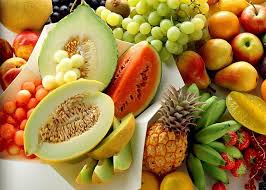
We all have that one go to healthy snack that we eat when we feel a change from junk. Sometimes our “healthy” snack we eat daily because its so good and we think its healthy. But what if your favorite healthy options aren’t so good for you after all? People ae constantly fooled into thinking their eating healthy because of words like “low fat”, “fat free”, “low calories”. But just because it is low in something does not mean it is not making up for it somewhere else. In today’s world, especially in college, it is so hard to find a healthy meal without spending a ton of money. In the commons, junk food is readily available. I know first hand, when I feel like being healthy, a get a wheat bread sandwich. But actually, that is worse. If wheat bread isn’t a 100% wheat, which it rarely is, then it contains enriched flour which is bad for you. Not the mention the turkey you might use for your sandwich. Turkey can be highly processed resulting in high levels of sodium and nitrate.
Want to grab the fat free yogurt? Better not, just because it is fat free doesn’t account for the high levels in sugar. That yogurt parfait also looks pretty good? Of course it does because it has almost as much calories as a dessert would, with high levels of sugar and calories. Reading nutrition labels is key when trying to find a healthy alternative. It is often hard not to be enticed by the strategically placed words but companies to try and sucker their consumers into thinking their getting a healthier option whilst charing them more. Eating a salad? I love salads, but I also love dressing, which is high in fat and calories. So what can I do? Light salad dressing sounds like a good idea? Actually not, light salad dressing is also bad for you, might as well stick with oil and vinegar. Another food that is seemingly healthy is trail mix, when in fact it had high levels in sodium and calories with all the added salt and chocolate chips. Granola is also not as good for you as people think. Granola has lots of sugar and calories. A bowl of granola can start at 500 calories at best or more. To see more foods that are actually unhealthy healthy foods go here.
When going grocery shopping, read the nutrition labels, they are key. They let you know which foods are actually healthy and what foods are disguised as being healthy. People get fooled everyday while grocery shopping, looking for the cheapest and “healthiest option”. Truth is, if its healthy, it won’t be the cheapest. Healthy options tend to run for more money due to the fact that there are more wholesome ingredients that get put into these products. If you’re having trouble shopping healthy, here’s some tips to help you. Shopping healthy can be hard due to how much we have been tricked our whole lives but food companies trying to make more money. It is better to stay on the safe side and not trust the initial “fat free”, and to actually check the nutrition label. Our eyes see fat free and immediately think we should pick it up, but retrain your body and mind into smart and healthy shopping.


Your blog further proved the widely held belief that looks can be deceiving. Manufacturers have a way with words and making products look better than they actually are. Typically when im in the mood for something healthy, I eat yogurt, fruit, or salad. I might have to rethink the yogurt though after reading your post, thanks for the heads up!
You blog further proved the widely held belief that looks can be deceiving. Manufacturers have a way with words and making products look better than they actually are. Typically when im in the mood for something healthy, I eat yogurt, fruit, or salad. I might have to rethink the yogurt though after reading your post, thanks for the heads up!
This post is so useful. I like eating snacks, and after seeing your post, I just realize that the snacks that I like to eat are actually bad for me. I am so surprised to know that. Now I need to wisely choose the snacks to eat. Here’s a website that also talks about snacks. http://www.shape.com/healthy-eating/diet-tips/50-seemingly-healthy-foods-are-bad-you
Your post provided me with a lot of valuable information and also presents an issue that many people do not even know exists. At the end of the day, food companies and grocery stores are marketing their products just as sporting goods companies and ad agencies do. Their job is to make their product seem more appealing than all others so that more people buy it. Because of this, as I recently learned in my nutrition 251 class, labels can tend to exaggerate how healthy a food actually is? If a product is being marketed is fat-free, it probably is, but who’s to say that the product now contains 5 times more sugar to counteract the loss of taste from removing the fat? The food industry is riddled with tricks like these, and many uninformed individuals continually struggle to eat healthy because they don’t actually know what they’re eating.